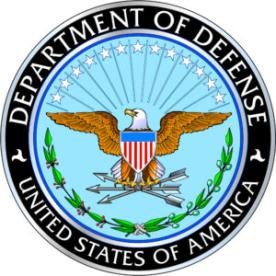



 DoD Compliance and Non-Disclosure Agreements" width="276" height="276" />
DoD Compliance and Non-Disclosure Agreements" width="276" height="276" />
Defense industry contractors commonly use non-disclosure agreements to protect their confidential information against potential misappropriation by departing employees, but they must exercise caution regarding the scope of these agreements.
On October 28, 2022, the Department of Defense (DoD) announced a final rule amending the Defense Federal Acquisition Regulation Supplement (DFARS) to prohibit the award of any DoD contracts to an entity that requires its employees to sign internal confidentiality agreements or statements that would prohibit or otherwise restrict its employees from lawfully reporting waste, fraud, or abuse related to the performance of a DoD contract to a designated investigative or law enforcement representative. The prohibition applies to contracts for commercial products and services, as well as contracts below the simplified acquisition threshold.
Non-disclosure agreements are ubiquitous in the defense industry. Employers sometimes draft these agreements very broadly, believing that it will provide the broadest level of protection for their confidential information. Under regulations such as the new DoD rule, however, employers must be careful that their non-disclosure agreements are not so broad that they might restrict employees from reporting potential violations of law to appropriate law enforcement agencies. Many employers may already be familiar with the Defend Trade Secrets Act of 2016, which contains safe harbor provisions for whistleblowers. The new DoD rule takes the approach a step further. Not only will an overly broad agreement fail in any objective to deter whistleblowers, the consequence of requiring employees to sign such overly broad agreements could be the loss of a lucrative defense contract.
Now is a good time for defense contractors to review their non-disclosure agreements to ensure that they are not overly broad in their restrictions concerning the reporting of fraud, waste, and abuse.
Copyright © 2024 Womble Bond Dickinson (US) LLP All Rights Reserved.![]()
![]()
![]()
![]()
We collaborate with the world's leading lawyers to deliver news tailored for you. Sign Up to receive our free e-Newsbulletins
You are responsible for reading, understanding, and agreeing to the National Law Review's (NLR’s) and the National Law Forum LLC's Terms of Use and Privacy Policy before using the National Law Review website. The National Law Review is a free-to-use, no-log-in database of legal and business articles. The content and links on www.NatLawReview.com are intended for general information purposes only. Any legal analysis, legislative updates, or other content and links should not be construed as legal or professional advice or a substitute for such advice. No attorney-client or confidential relationship is formed by the transmission of information between you and the National Law Review website or any of the law firms, attorneys, or other professionals or organizations who include content on the National Law Review website. If you require legal or professional advice, kindly contact an attorney or other suitable professional advisor.
Some states have laws and ethical rules regarding solicitation and advertisement practices by attorneys and/or other professionals. The National Law Review is not a law firm nor is www.NatLawReview.com intended to be a referral service for attorneys and/or other professionals. The NLR does not wish, nor does it intend, to solicit the business of anyone or to refer anyone to an attorney or other professional. NLR does not answer legal questions nor will we refer you to an attorney or other professional if you request such information from us.
Under certain state laws, the following statements may be required on this website and we have included them in order to be in full compliance with these rules. The choice of a lawyer or other professional is an important decision and should not be based solely upon advertisements. Attorney Advertising Notice: Prior results do not guarantee a similar outcome. Statement in compliance with Texas Rules of Professional Conduct. Unless otherwise noted, attorneys are not certified by the Texas Board of Legal Specialization, nor can NLR attest to the accuracy of any notation of Legal Specialization or other Professional Credentials.
The National Law Review - National Law Forum LLC 2070 Green Bay Rd., Suite 178, Highland Park, IL 60035 Telephone (708) 357-3317 or toll-free (877) 357-3317. If you would like to contact us via email please click here.
Copyright ©2024 National Law Forum, LLC